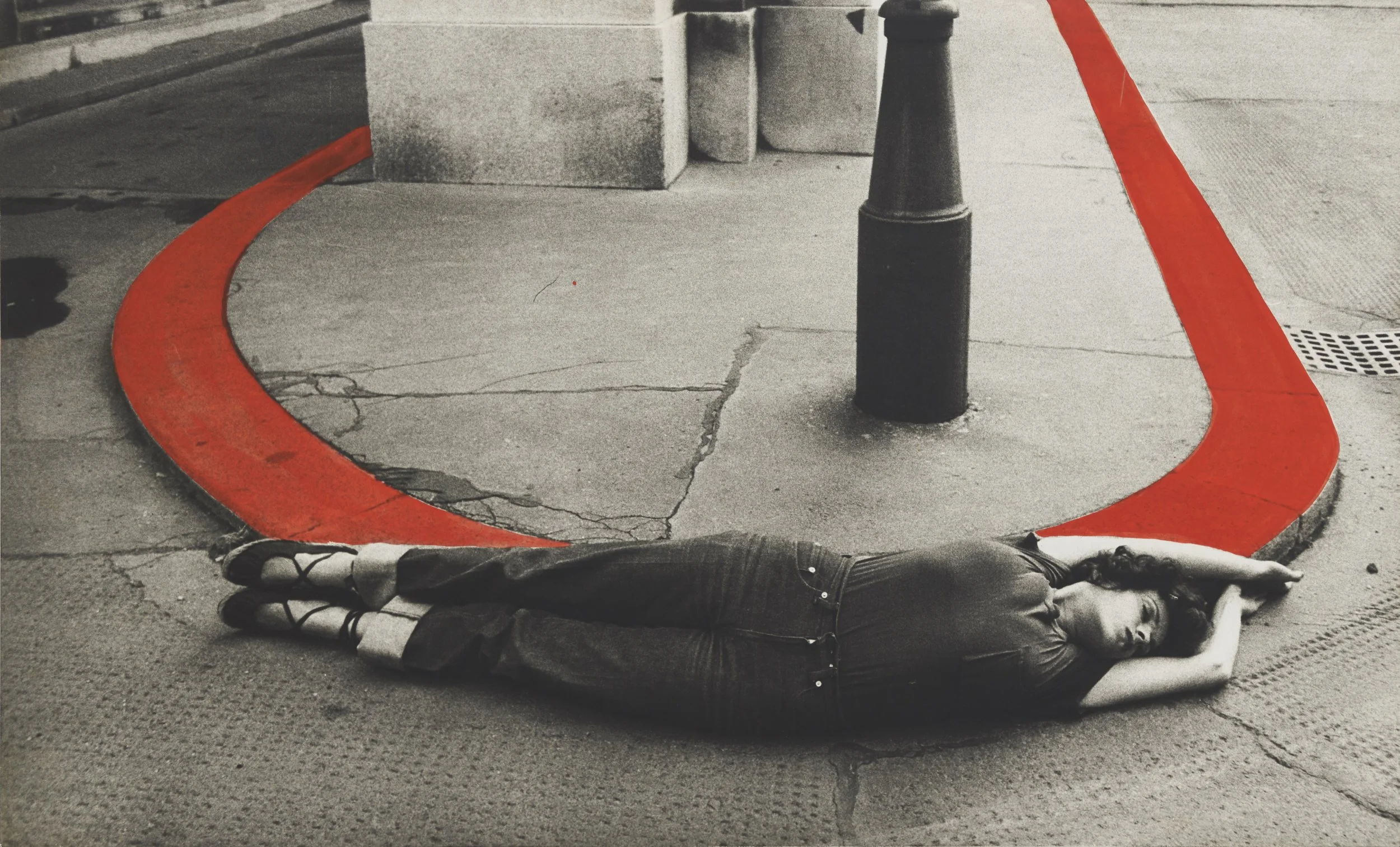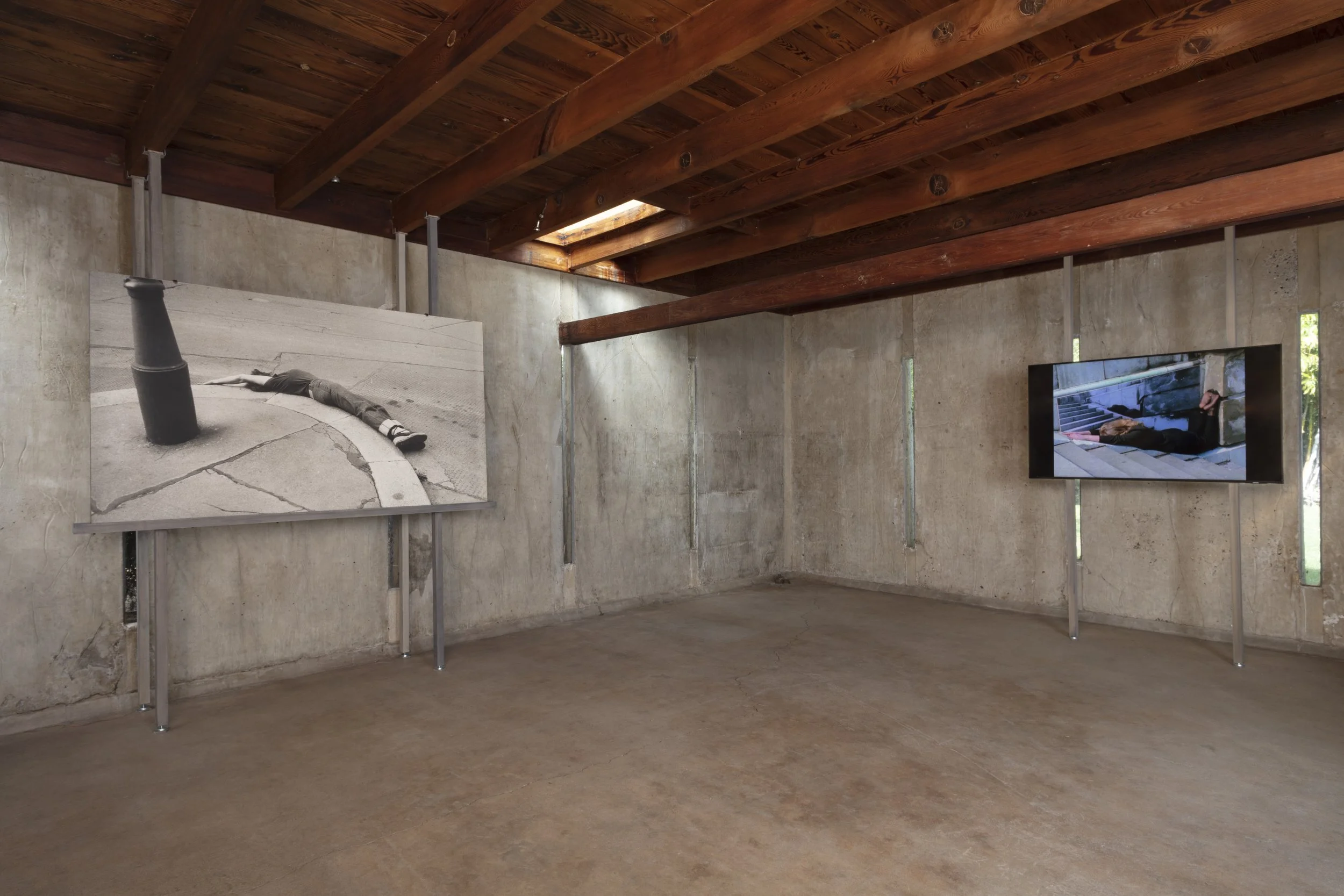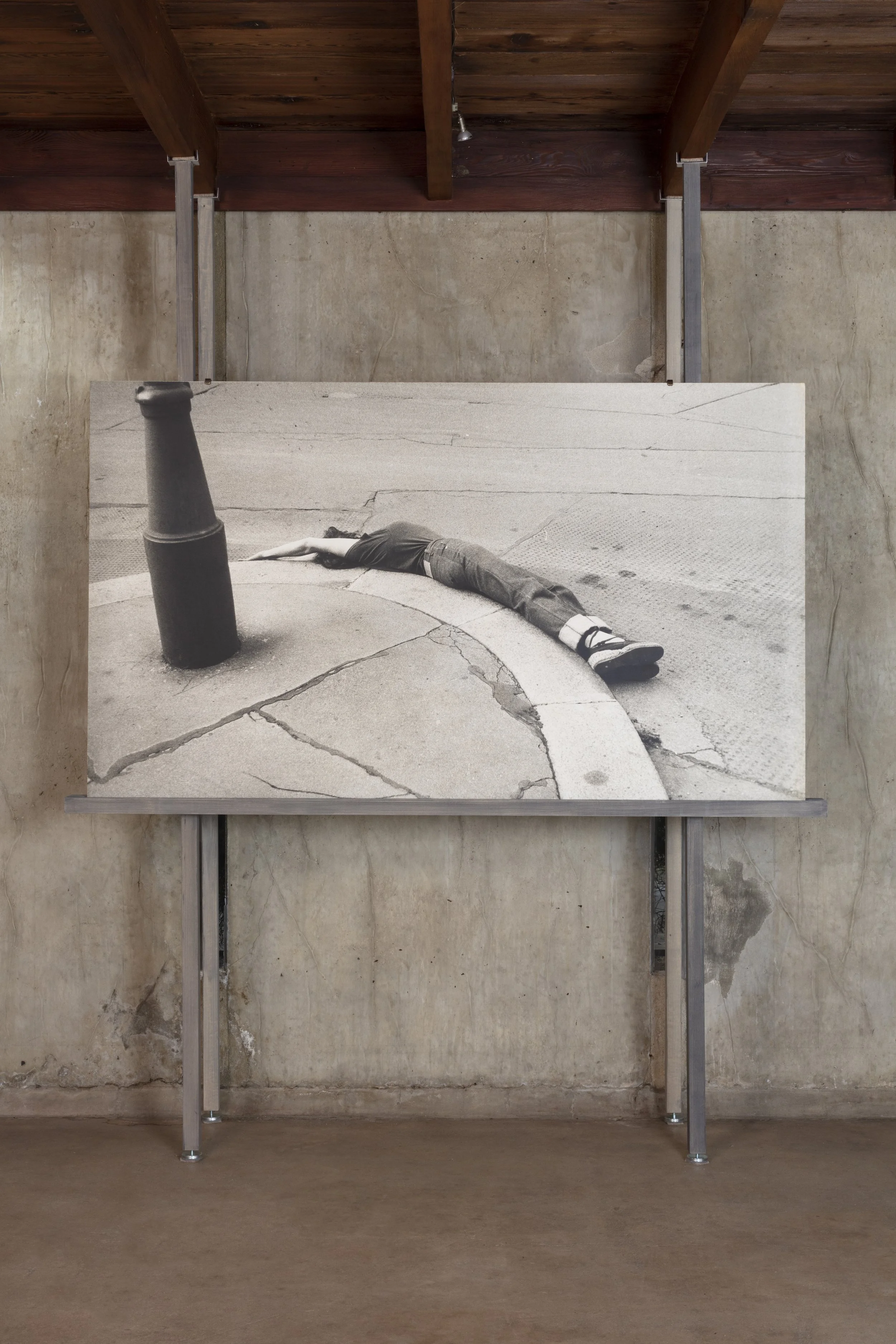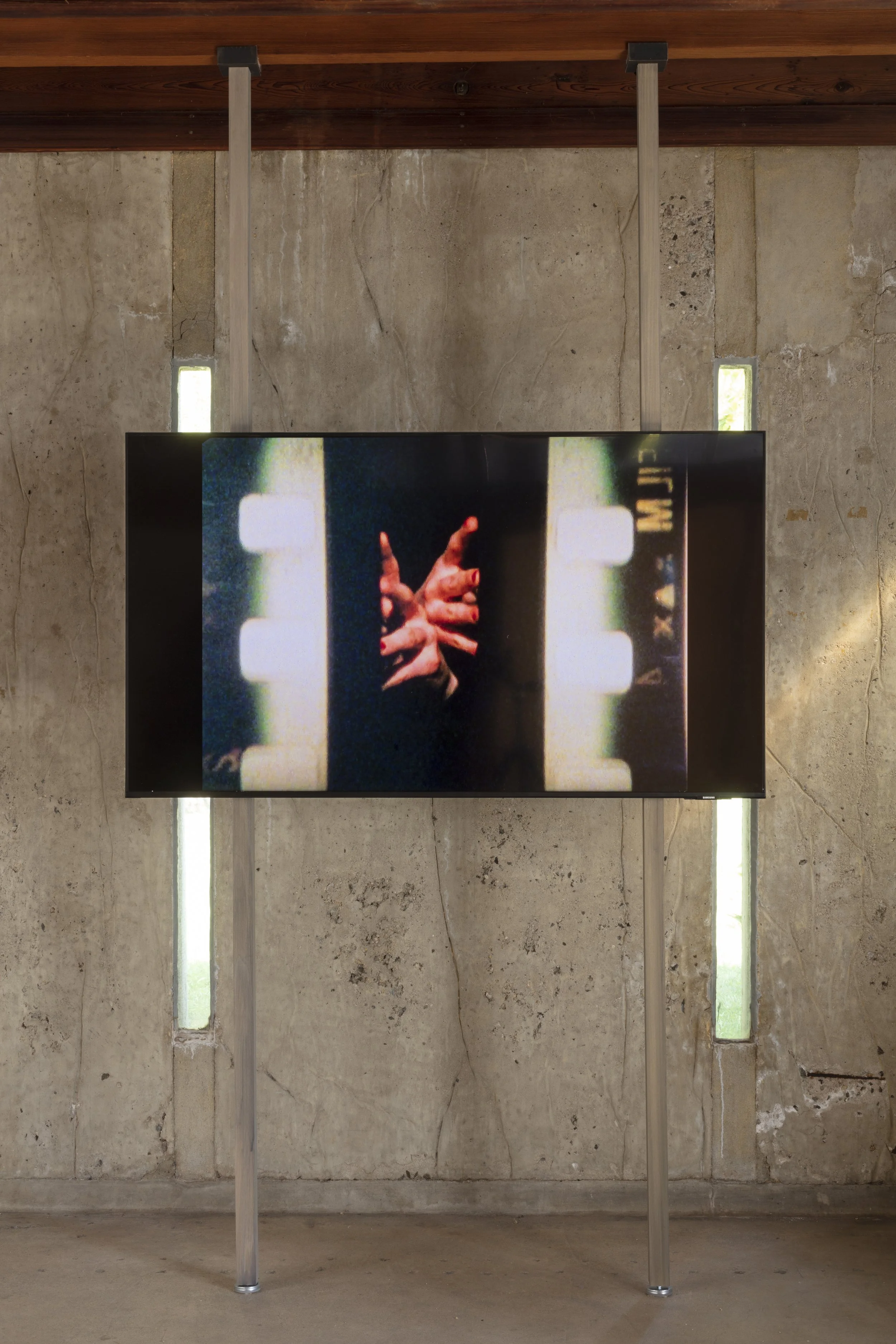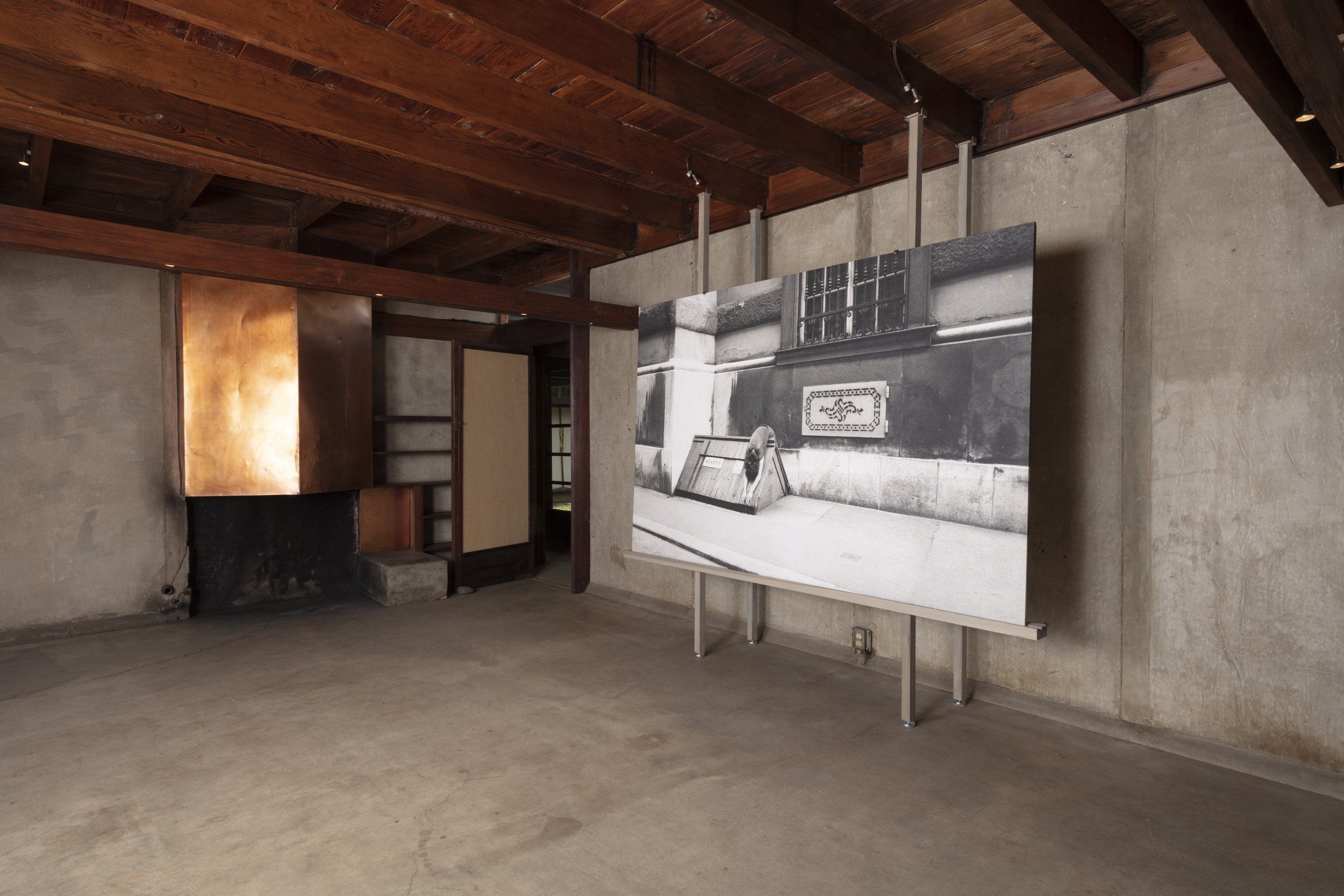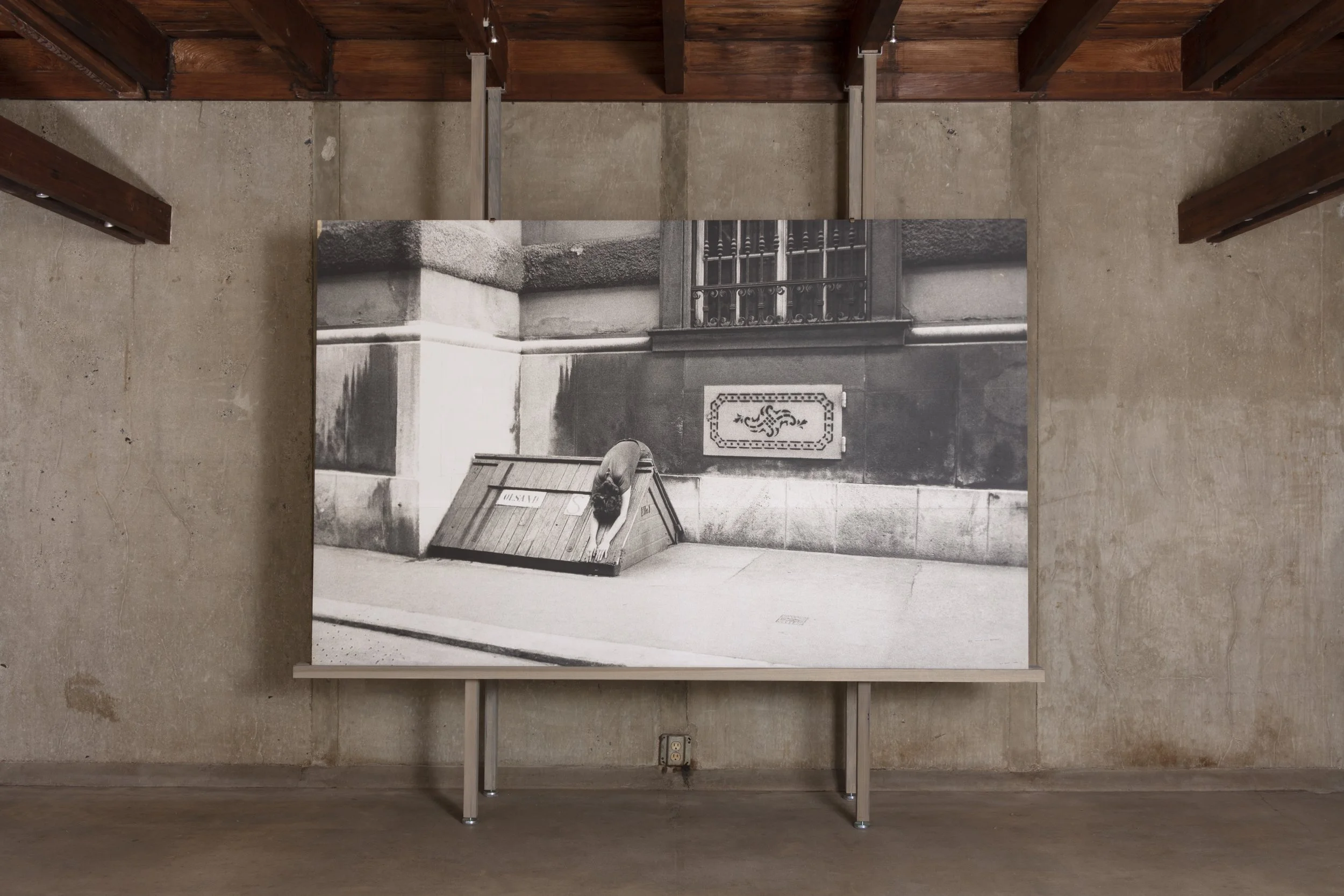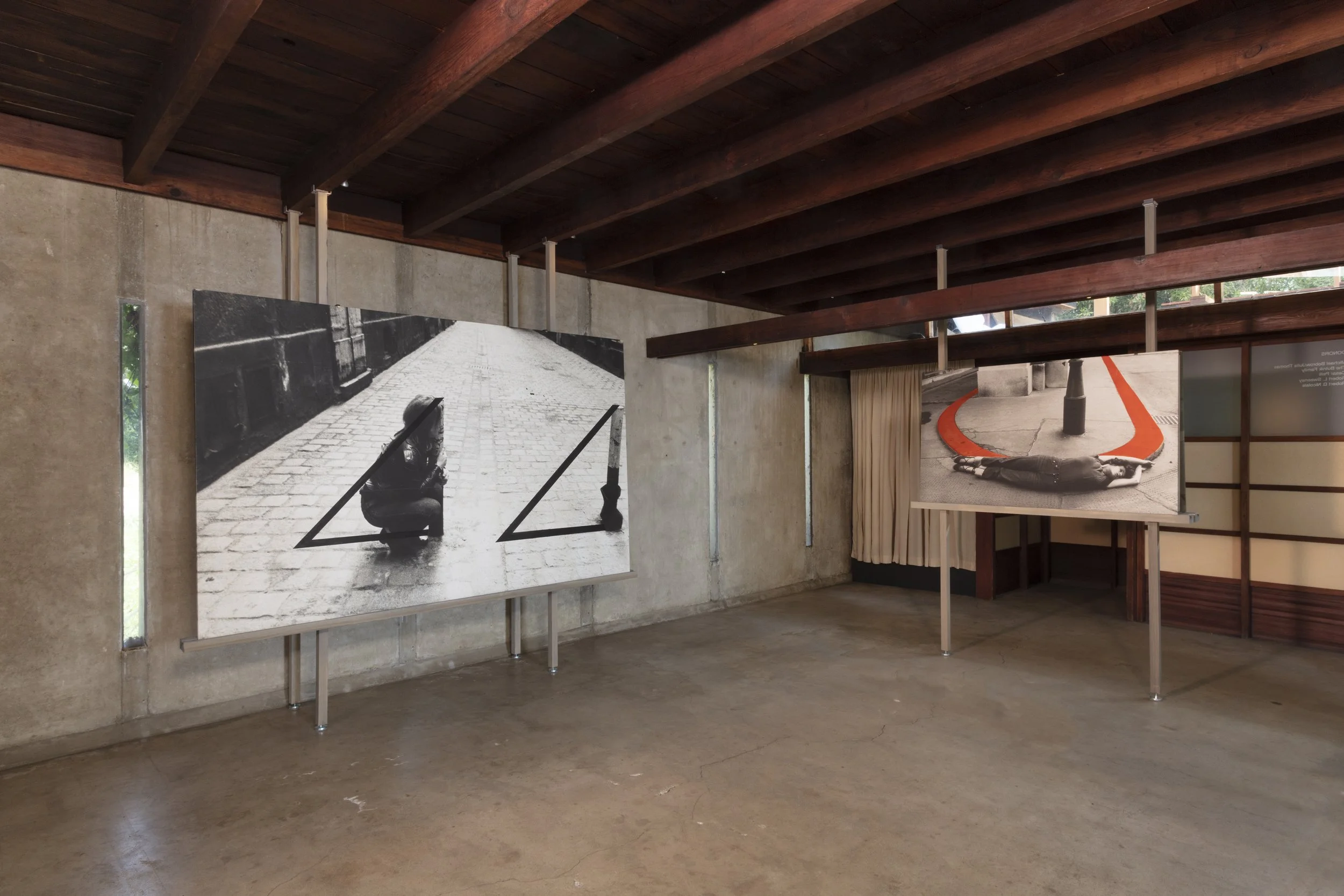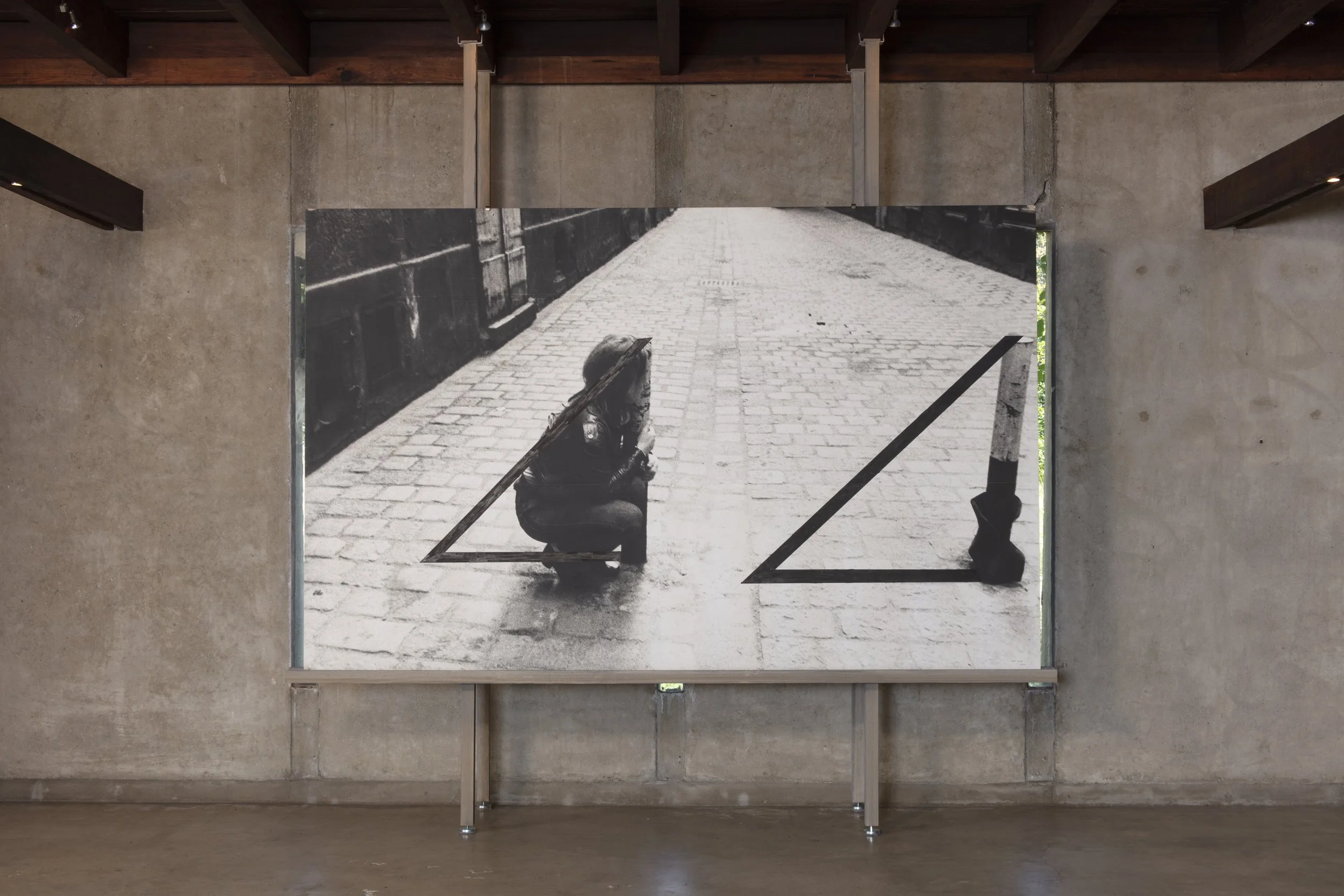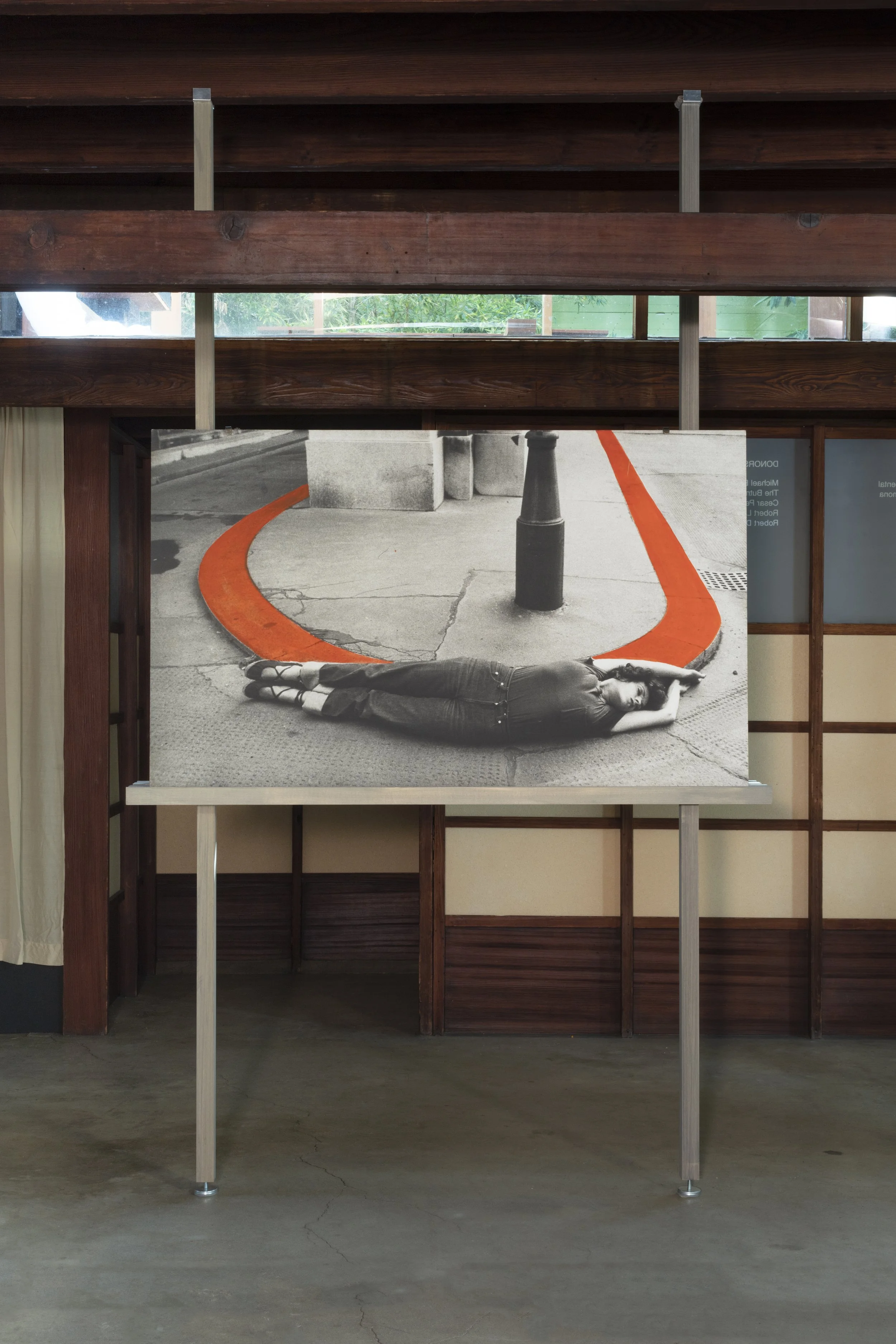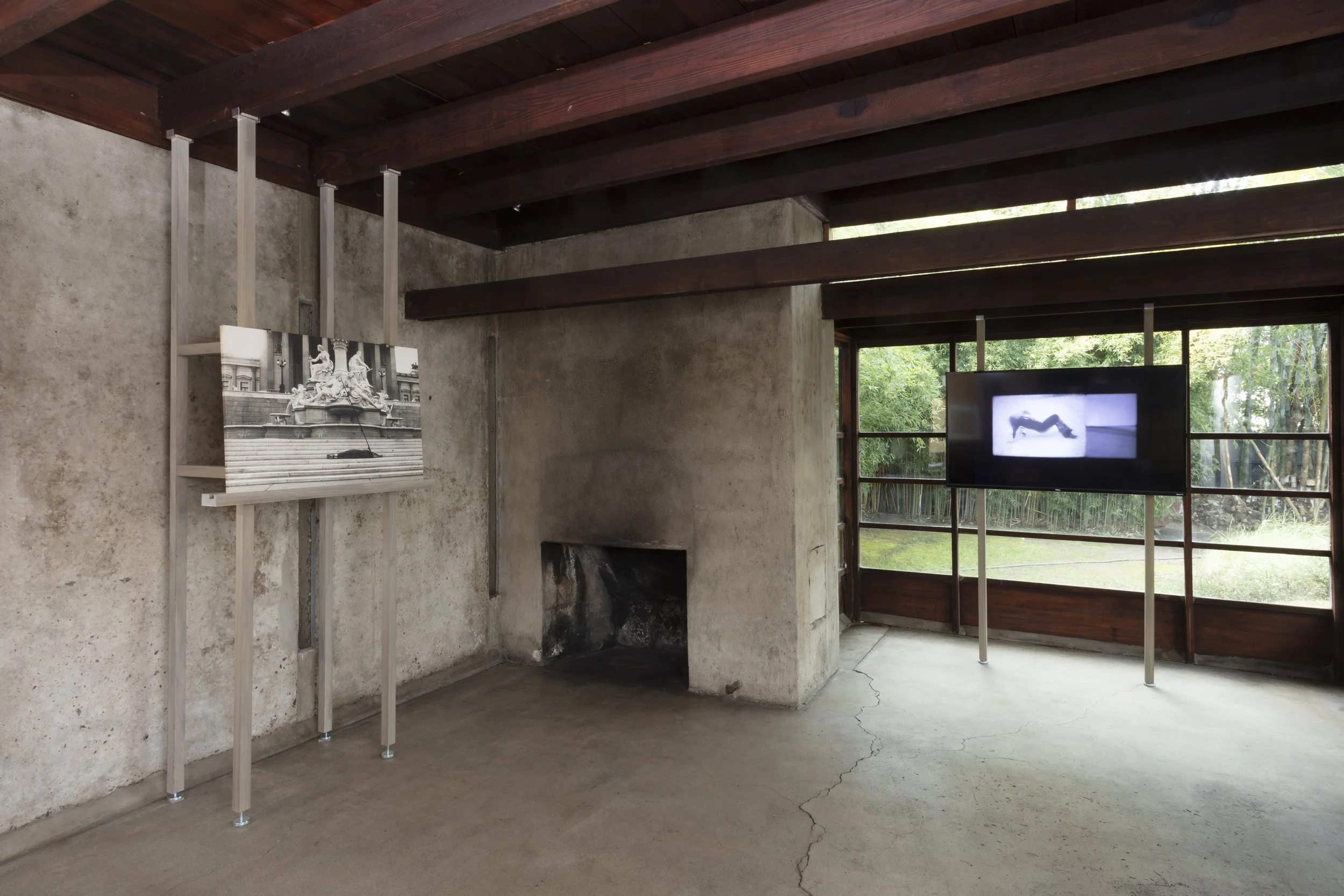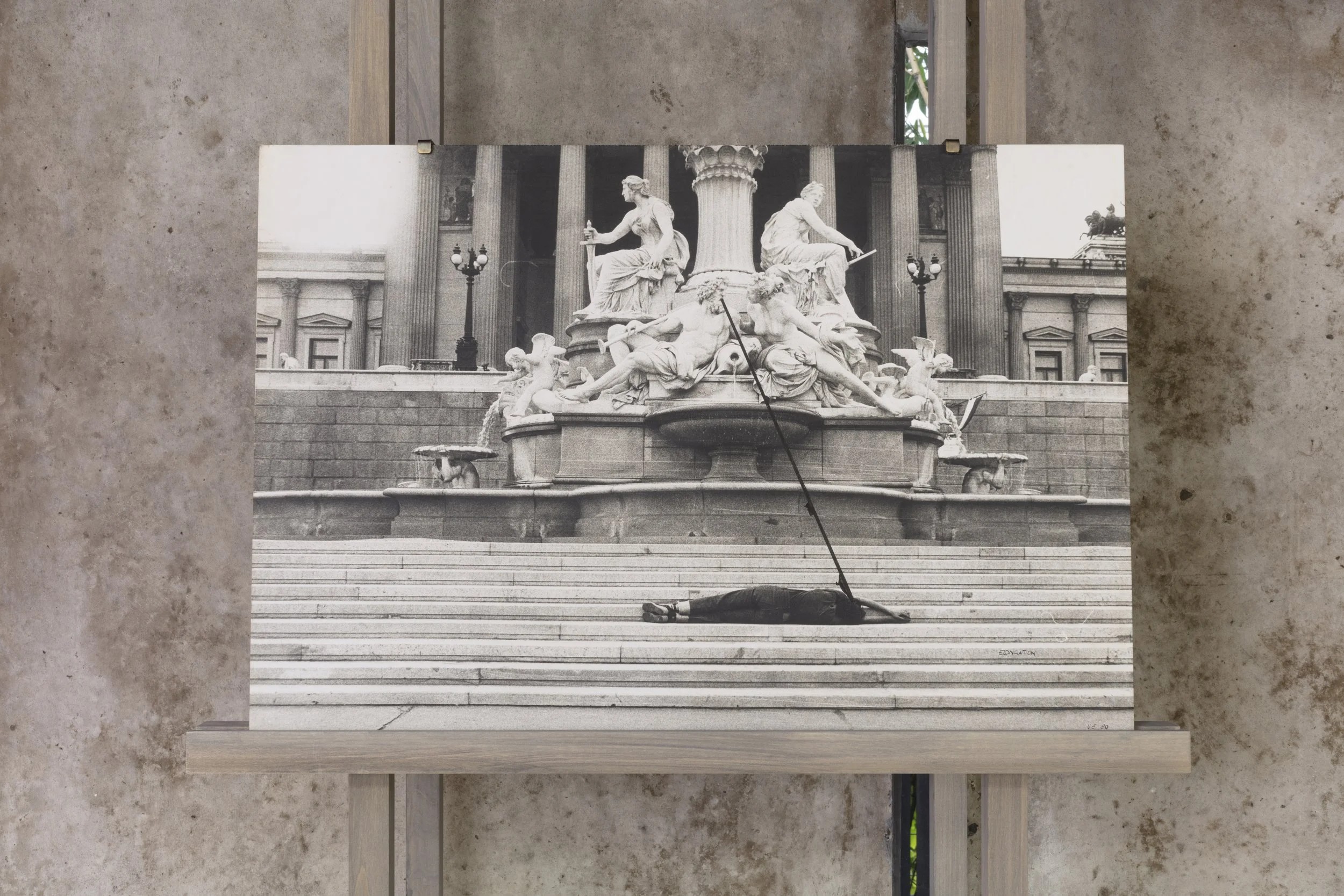VALIE EXPORT, Einkreisung, 1976. Black and white silver gelatin print on baryta paper laid on chip board, Collection Thaddaeus Ropac, © VALIE EXPORT / Bildrecht Wien, 2024
VALIE EXPORT’s work has redefined the fields of conceptual art, performance, and expanded cinema. Since the 1960s, her early projects have blurred the boundaries between photography and documentation, performance and action, often by utilizing the female body as prop and provocation to classical regimes of architecture. The ‘photo-graphic’ series, Body Configurations (1972-1976) captures direct interventions through bodily insertions into public space. VALIE EXPORT: Embodied presents select works from this seminal series, reflecting her early investigations into the politics of space, image-making, and the body as both an ideological and technological device. Accompanying the photographic series in the exhibition are two video works by VALIE EXPORT, Adjunct Dislocations (1973) and Syntagma (1984), which present the artist’s filmic inquiries into the real and the representational.
Working across the mediums of performance, film, photography, video, sculpture, and installations, EXPORT’s work engages with the construction and representation of the female body, confronting ideas of sexuality, intimacy, and transgression in both private and public arenas. Her first solo presentation in Los Angeles since 2001, the exhibition centers on EXPORT's early artistic explorations, expanding on the production of meaning and materiality in film, photography, and performance, while challenging the social function of women and the ideologies of space and the built environment.
The exhibition positions these influential works in dialogue with a contemporary performance program featuring Los Angeles-based artists responding to VALIE EXPORT’s work and the Schindler House.
VALIE EXPORT
A pioneer in film, video and installation art, VALIE EXPORT has produced one of the most significant bodies of feminist art in the post-war period. Her groundbreaking films and performances in the 1960s and 1970s introduced a new form of radical, embodied feminism to Europe, examining the politics of the body in relation to its environment, culture and society. The multi-disciplinary nature of EXPORT's 'Expanded Cinema' practice and use of her own body as an artistic medium positions her as one of the earliest performance artists alongside Joseph Beuys and Allan Kaprow.
VALIE EXPORT lives and works in Vienna, where she co-founded the Austrian Filmmakers Cooperative. Since 1968, she has taken part in numerous international exhibitions, including documenta 6 and 12 (1977 and 2007) and the Austrian Pavilion at the Venice Biennale in 1980. In recent years, the Staatliche Kunsthalle Baden-Baden (2020); Neue Berliner Kunstverein (2018); Lentos Kunstmuseum Linz (2017); Kunsthaus Bregenz (2011); Belvedere Museum, Vienna (2010); Israel Museum, Jerusalem (2009); and Centre Pompidou, Paris (2007) have devoted major solo exhibitions to her work. EXPORT has taught at a number of international institutions, including the University of Wisconsin, San Francisco Art Institute and University of the Arts in Berlin. From 1995–2005 she was professor of multimedia and performance at the Academy of Media Arts in Cologne. In 2019, she was awarded the Roswitha Haftmann Prize in recognition of her outstanding contributions to the visual arts. VALIE EXPORT received the Max-Beckmann-Prize of the City of Frankfurt 2022.
Sunday, March 10, 2024
12—1 pm
Saturday, March 23, 2024
11 am—6 pm
Friday, March 29, 2024
7—9 pm
Saturday, March 30, 2024
7—9 pm
VALIE EXPORT: Embodied is organized by MAK Center Director Jia Yi Gu with Seymour Polatin, Exhibitions and Programs Manager, Brian Taylor, Curatorial Assistant, and Maeve Atkinson, Education and Engagement Coordinator.
The performance program In Their Own Image is curated by Chloë Flores and features new work by performing artists Zackary Drucker, Sierra Fujita, Emily Lucid, Lara Salmon, Andrea Soto, and Dorian Wood. The program is in partnership with homeLA.
The exhibition and program is made possible with support from Thaddaeus Ropac Gallery, Betsy Greenberg, the Austrian Consulate General Los Angeles, the Los Angeles County Arts and Culture Department, and MAK Center’s Centennial Council.

